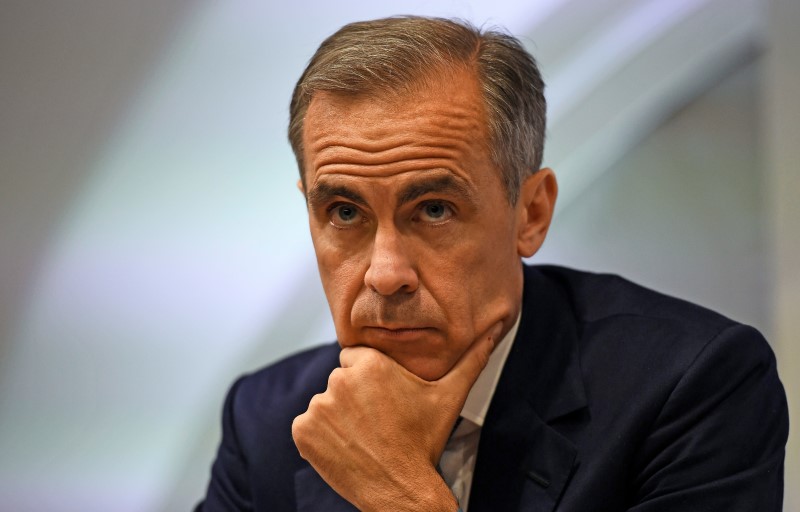By Matt Scuffham and Fergal Smith
TORONTO (Reuters) - As much as $7 trillion will need to be spent building new infrastructure around the world that will make it possible to cut carbon emissions over the next 15 to 20 years, Bank of England Governor Mark Carney warned on Friday.
Carney, speaking with Canadian Environment and Climate Change Minister Catherine McKenna at an event in Toronto, said measures to finance green initiatives would form a major part of this year's G20 summit in China in September, and encouraged investors to back them.
"In terms of what is the magnitude of clean energy or lower- carbon energy infrastructure and cleaner water sanitation, etc., that will be put in place over the next 15 to 20 years ... it's somewhere in the order of $5 to $7 trillion," Carney said. "The question is how much of that is going to be financed through capital markets."
China, one of the world's biggest greenhouse gas emitters, is eager to be seen taking a leadership role in global action to combat climate change and has said it will push for efforts to encourage green investment while leading the G20 group of developed and emerging market countries.
Carney said the Bank of England had been working with the People's Bank of China over the past 18 months to develop a "green" bond market that could finance environmentally friendly projects, part of a broader set of initiatives.
The former Bank of Canada governor said about $500 billion will be raised each year in China through capital markets to finance environmentally friendly projects.
He said those instruments could be attractive to global investors, many of whom are struggling to generate required returns against the backdrop of government bond yields at record lows and volatile global equity markets.
"How are your yields these days?" Carney asked fixed-income investors at the event.
"It won't surprise you that yields in China are considerably higher than those in Canada and the UK and elsewhere. It also won't surprise you that they are keen to open up this market."
Carney also backed efforts to launch programs that put a price on carbon dioxide emissions, saying it was the "cleanest" way to regulate to stabilise emissions.
Carney was Bank of Canada governor before being recruited in 2012 to head the Bank of England.

He did not discuss Britain's recent vote to leave the European Union and did not take questions from reporters.